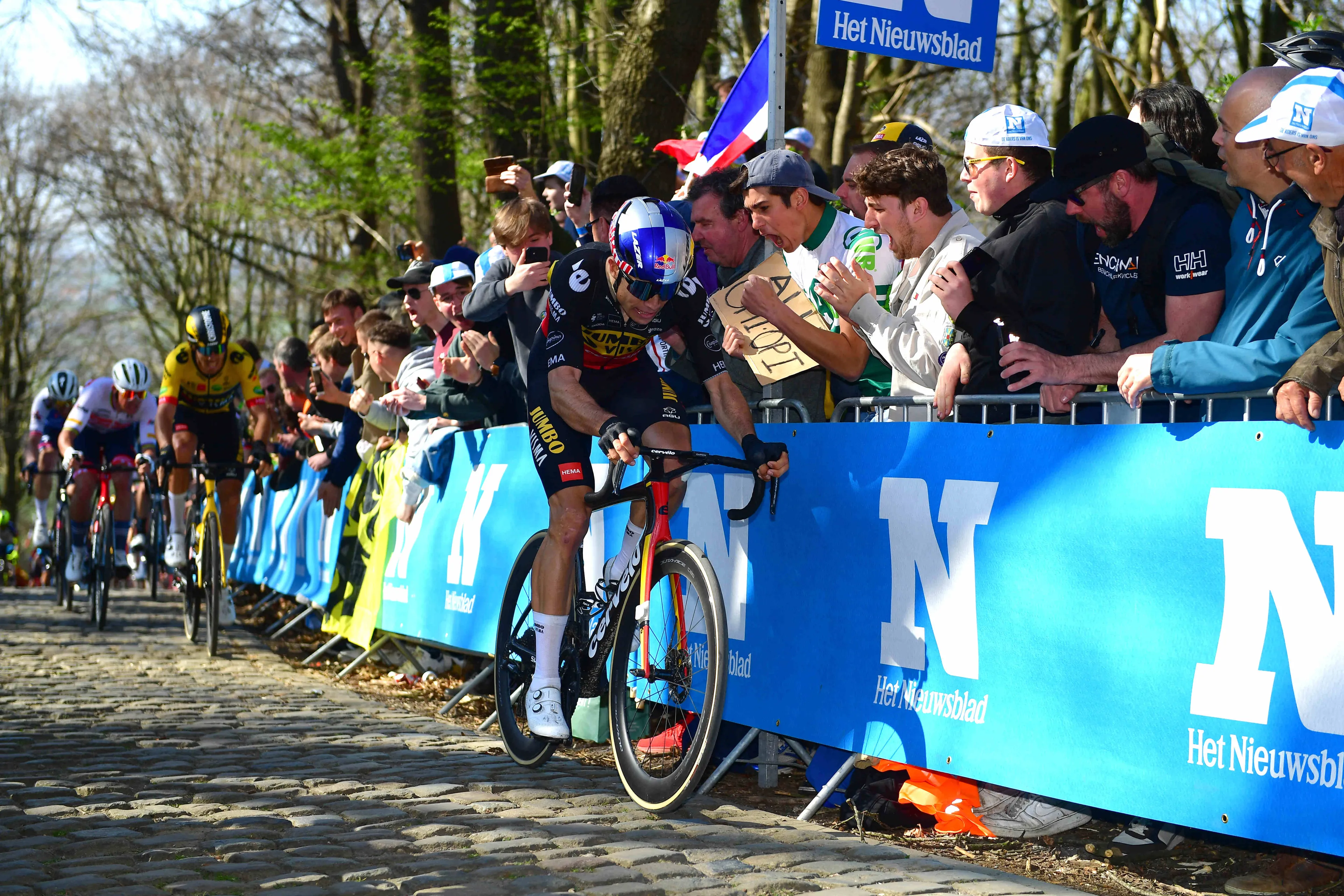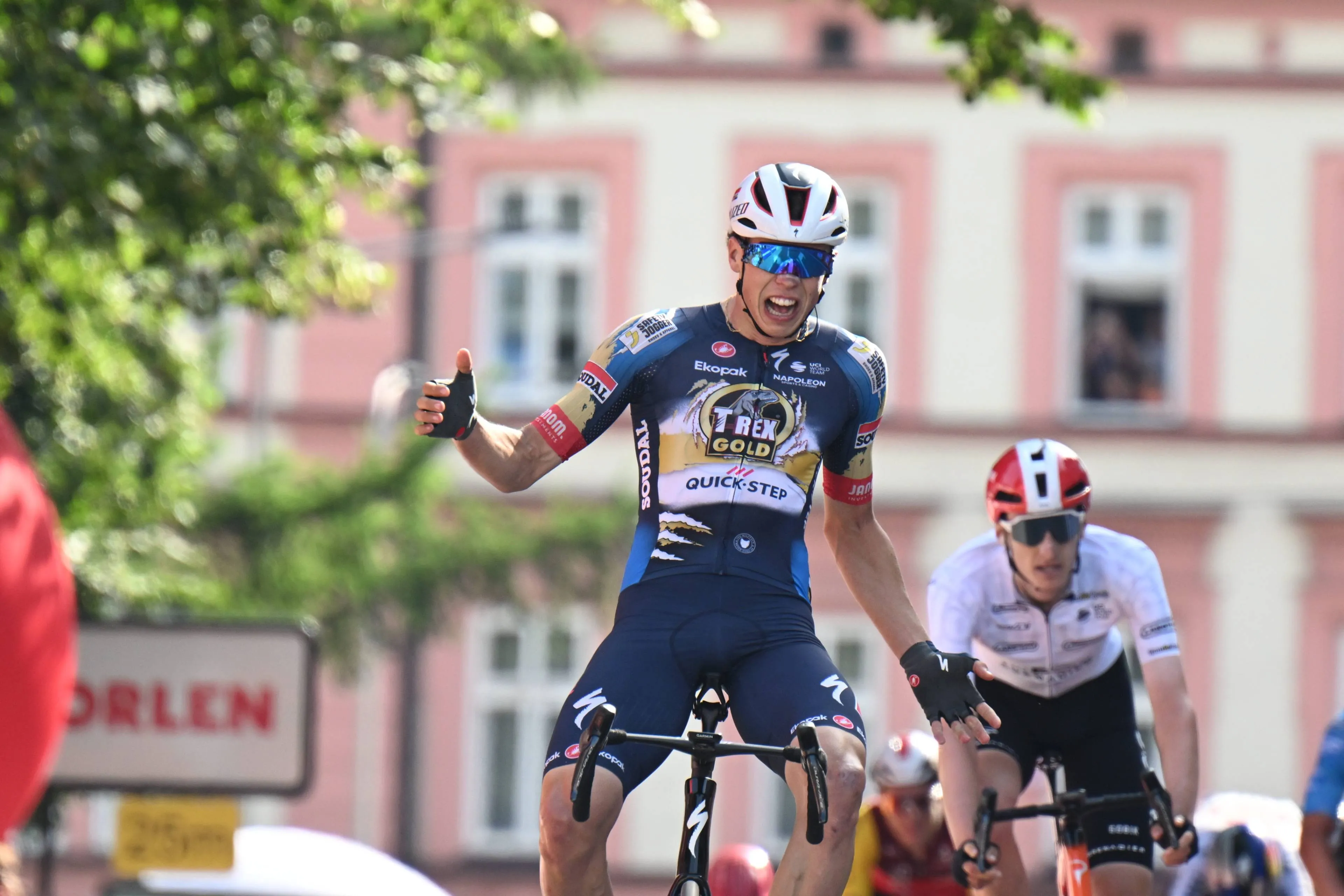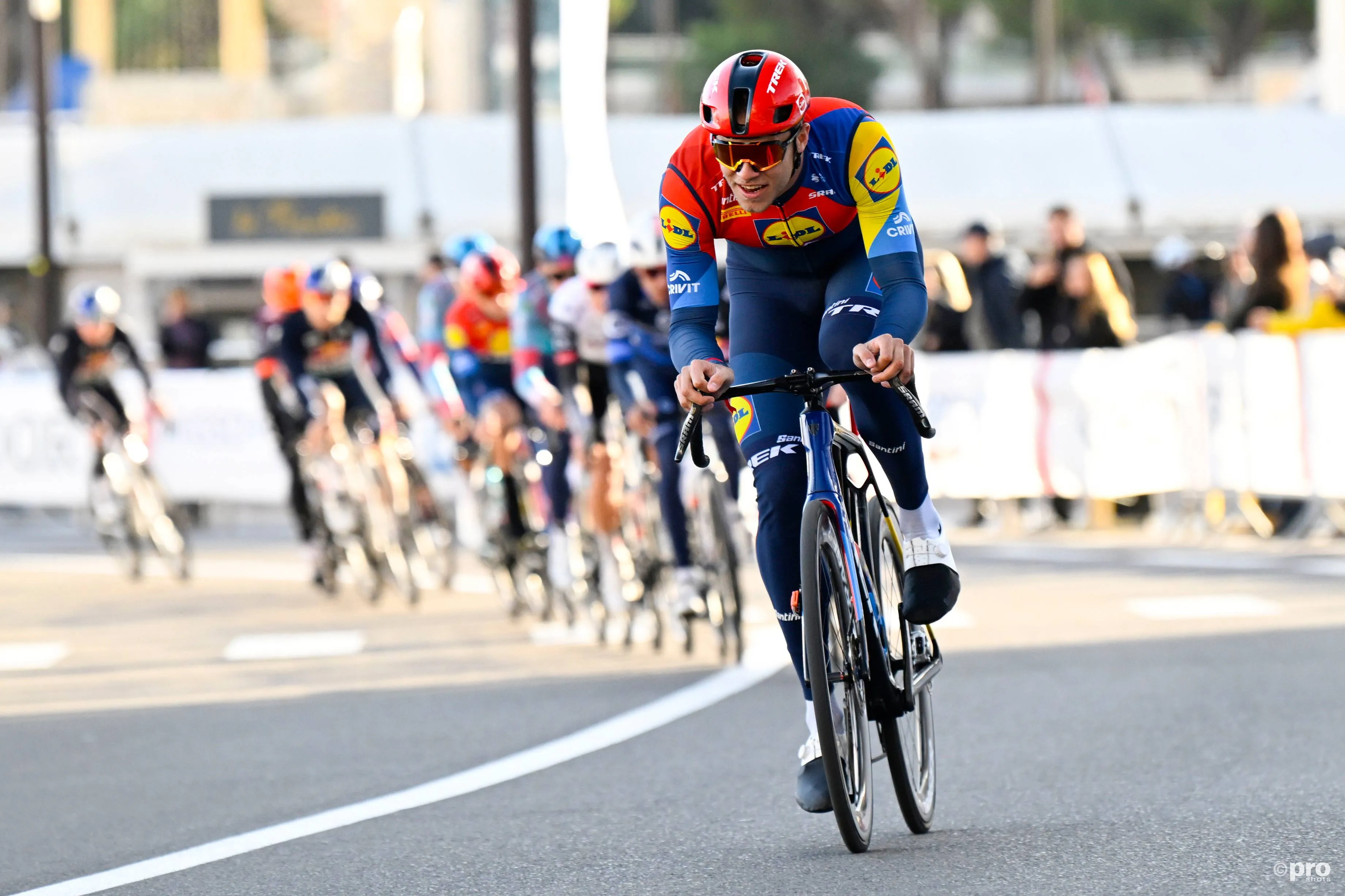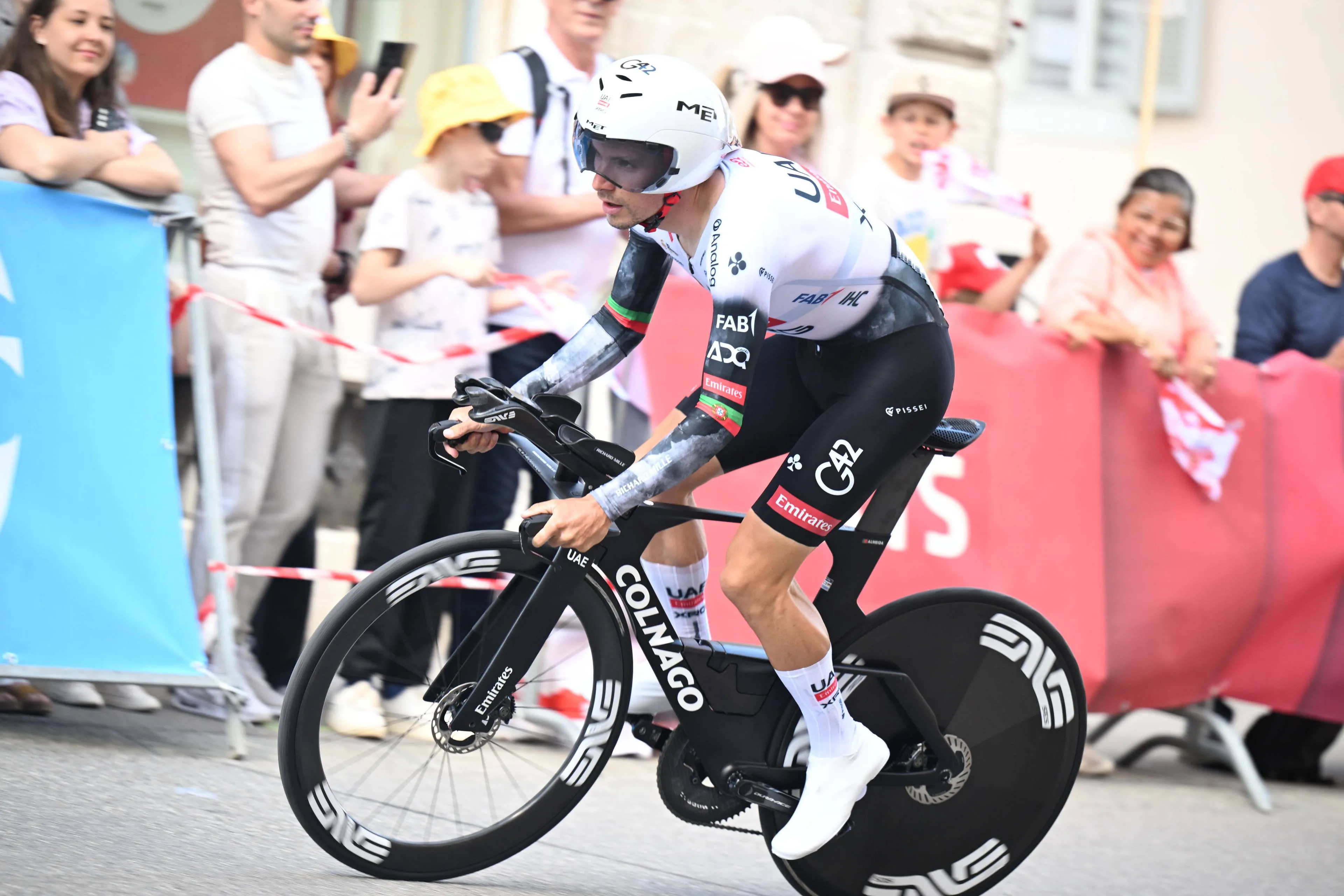Taylor Phinney talks substance abuse in the peloton, "in the classics, so many of the guys were doing that"
CyclingFriday, 08 April 2022 at 11:30
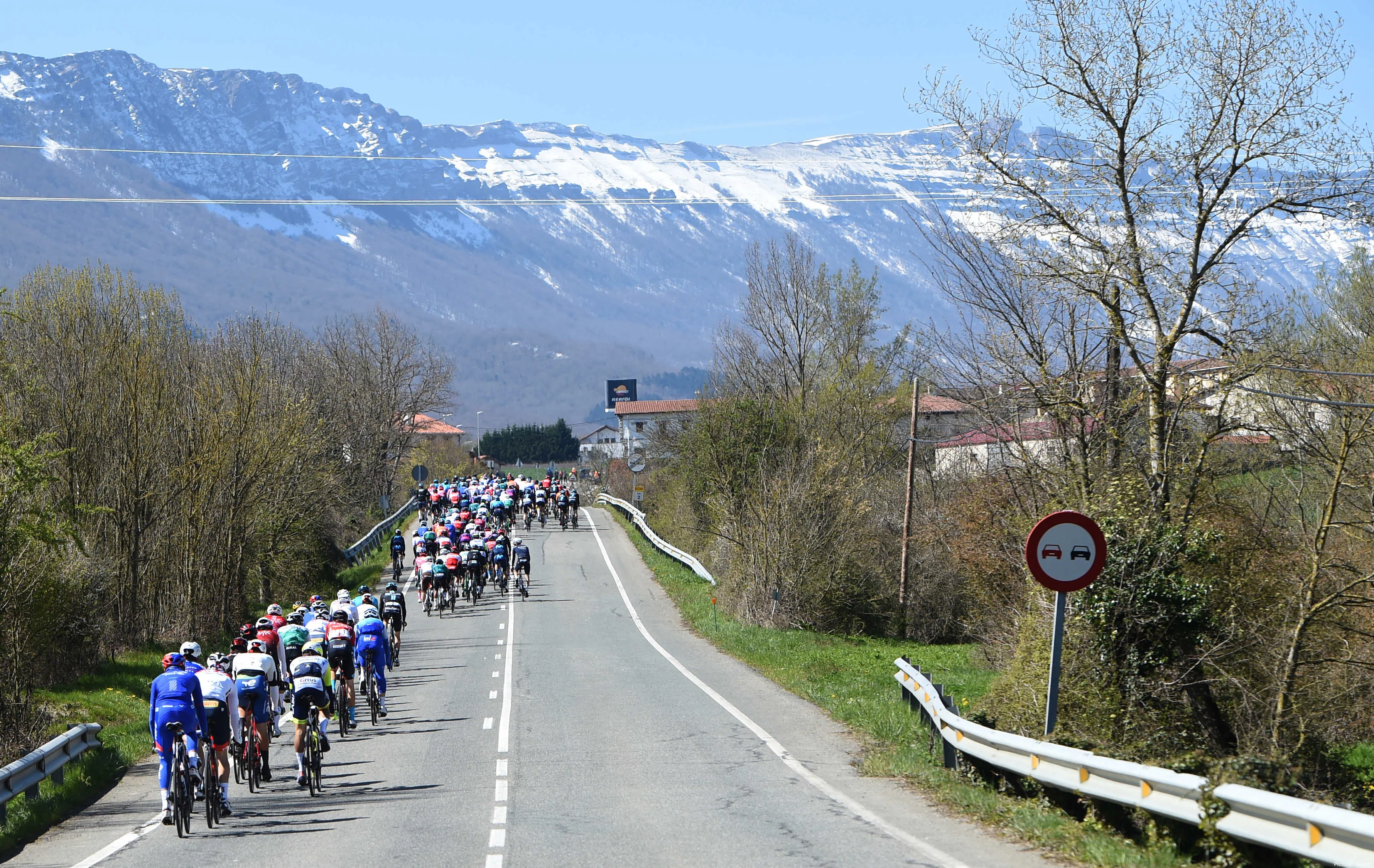
Taylor Phinney was one of the most prolific American time-trialists of the last decade, and a very popular rider within the peloton. He retired in 2019 after three years with the current EF Education - EasyPost team, and he's talked about substance use in the peloton in the years where he has ridden professionally among the best.
“There was a time when I was quite outspoken about finish bottles in races. When I first started racing the EPO and blood doping era was seemingly past but there was still a huge amount of opiate abuse in the sport," Phinney said in an interview on the Thereabouts podcast. The American rider retired in 2019 but has since remained vocal in the cycling space.
Read also
“I don’t know if that has completely gone away but it was pretty widespread in my first couple of years that you would smash a couple of Tramadol at the end of the race... If I took one of those right now it would send me to the moon. I was never into that, I would get offered that but I was like I don’t think I need an opiate painkiller today to get through this race," he said. Then he went on to talk about the classics, where he reported that the practice was quite common in the peloton.
“But it was just a thing, especially in the Classics, so many of the guys were doing that. I was kind of like, ‘this is fucked up’. So I said some stuff about it in an interview, and then I also talked about how there was a fair amount of coincidentally timed cortisone injections being given to some people going into certain races. You don’t need it. If you need a cortisone injection you should be out for a while. Not like, I just got a cortisone injection and now I’m like, winning Flanders," he added.
Read also
He talked about the use of cortisone in 2014, after having broken his leg in a crash at the American national championships which kept him out of competition for over year: “I had a cortisone injection eventually when I broke my leg and I was just flying and half of my leg didn’t work. I was like, OK, I think I understand this now. I spoke out about that and I received quite a bit of backlash from the management.”
Outside of that people were like ‘yay he’s speaking up’ against this or that. But within the group, there’s very much this ‘this is our secret, our world'," he said as a way to explain some of the mentality in the peloton.
claps 1visitors 1
Just in
Popular news
Latest comments
- Pogi's weakness seems to be that he can't succeed in the immediate post-tour races (maybe he'll show that he can this year?). If you compare his track record in the races after the Tour de France but before the Canadian classics with that of Vinge, they do not reflect his class in other parts of the season. In 2020 he didn't race anything during that period; in 2021 he was surprisingly beaten by Richard Carapaz in the Olympic Road Race, finishing 3rd, and DNFd in the Bretagne Classic; in 2022 he DNFd in Donostia Klasikoa and finished 89th in the Bretagne Classic; in 2023 he finished 3rd at the WCh RR, being unable to match Mvdp's acceleration despite the Dutchman having had his least impressive Tour de France, and then he went on for a stinker at the WCh TT. In 2024 and 2025 Pogi abandoned racing during the immediate post-tour races entirely. With Vinge it's a different story entirely - in 2021 he finished 8th at Donostia; in 2022 he didn't race during that period; in 2023 he backed up his Tour level at La Vuelta; in 2024 he won the Tour de Pologne and in 2025 he won La Vuelta. In short, Pogi hasn't performed well in the immediate post-tour period. He's put on some good performances but anyone who says that those reflect his true class probably wouldn't be thinking straight. For that reason, if he wants to assert himself as the GOAT, he needs to win Donostia, La Vuelta, Tour de Pologne and the Bretagne Classic etc. Sometimes, with the debate about Tadej surpassing Merckx, we focus only on the races where he's been on a top level but not won them, but we forget about the races where he's never managed to get on top form anyway.
 Rafionain-Glas21-02-2026
Rafionain-Glas21-02-2026 - He’s beaten Tadej multiple times including LBL( Tadej didn’t finish) WC Road Race WC TT, San Sebastian etc. Unfortunately for Remco Tadej has kept getting better.mobk21-02-2026
- You're reaching, Remco has some great wins within great fields. He consistently beats Tadej in TT's, but he isn't a pure climber. He's also a year young than Tadej. If he keeps working hard and developing he could maybe take a Tour in three or four seasons time.awp21-02-2026
- He will make top five in the Tour as long as he doesn't crash out before then.awp21-02-2026
- He's not in great climbing form right now, still a little pudgy. If he can reach his 2024 form he will be in the top five at the Tour.awp21-02-2026
- Do you understand anything about people? If everyone rooted for the same person, sport would completely die as would the betting industry and much more.Jumpyjohn21-02-2026
- It's possible Remco has improved but that others are improving more. For all his qualities I just can't see him as a climber.Renz21-02-2026
- It’s all too easy to sit in judgment, yet I seriously doubt any of us could hold the man’s wheel for 30seconds even if he were riding a penny farthing…. Still, haters gonna hate eh?Jezla21-02-2026
- To your sadness...or happiness...this will never happen. Maybe Del Toro can beat him on occasions, but that will happen very rarely. Cyclists like Pogi come along every 50 years. Del Toro is to Pogi what Mini-Me is to Austin Powers. CAPISH?Mou-Cro-HR21-02-2026
- Some new alias will pop up here ;-)Mistermaumau21-02-2026
Loading
Write a comment
